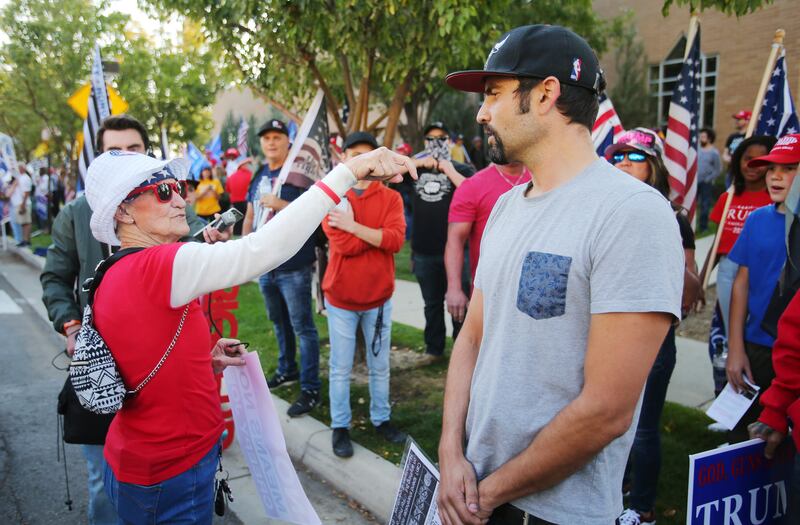Anyone who has been watching the news would agree that we have a problem in America. Republicans blame the Democrats. Likewise, Democrats blame the Republicans. But what actually is the problem?
In their book, “Practicing Narrative Mediation,” psychologists John Winslade and Gerald Monk state that the key to resolving conflict is remembering this: “the person is not the problem, the problem is the problem.”
But if people are not the problem, and the problem is the problem, what exactly is the problem in our country? In short, it’s a narrative problem. It’s the stories that we tell about ourselves and our group, and the stories that we tell about each other.
These stories matter. Humans make sense of their world through stories. “That man is kneeling, he must be proposing.” “That woman is wearing an orange vest, she must be a crossing guard.” Or when we don’t have a story to explain behavior, we often default to: “that person is doing that thing because they are crazy, or evil or ignorant.”
Where stories become a problem is when they actively contribute to a conflict. In an article published in the July 9, 2008, Harvard Law School’s Negotiation Journal entitled “Mediation and Genre,” Samantha Hardy surmises that western culture views conflict through the genre of melodrama. The elements of melodrama include good guys versus bad guys where the bad guy does something bad and the good guy’s role is to mete out justice. We see this genre in politics, particularly in a system that is dominated by two parties, leaving room for only two major characters: one to play the bad guy and one to play the good guy. Which one is which depends on which side you are on.
There are several problems with using melodrama in real life: First, we always see our side as the good guys and the other side as the bad guys. Second, nobody fits entirely into one category because people are complex. Third, there is no space for resolution, because if someone is a “bad guy,” their actions can never be legitimized, and if someone is a “good guy,” their actions are always justified — none of which is real life.
This is the space that America has found itself in. It’s a never ending tit-for-tat between the Left and the Right where blame is thrown back and forth. Meanwhile, our nation’s problems fall by the wayside. It’s difficult to get out of while people are devoted to the melodramatic narratives and the political parties that weave them to keep supporters loyal and to win elections.
Americans are problem solvers, and our history has shown that in a tragedy we rise up the strongest.
Hardy’s solution is to shift the narrative from melodrama to tragedy. In a tragedy there aren’t good guys or bad guys. The story includes a tragic hero who must overcome an obstacle that’s in their way. In a tragedy, people are not the problem. The problem is the problem.
To make this shift, we have to first recognize that everyone is a victim to the narratives that they are subjected to. Because most of us will never have first hand experience or be privy to all of the details of an event or an issue, we are all reliant on another source for our “facts.” This realization should lead all of us to skepticism. Although skepticism is terrifying (because it leaves your worldview hanging in the balance), it creates a space for new narrative possibilities.
Second, we must change our storytelling to give each other space to be complex. Complexity is discovered by curiosity. It requires asking questions to find out how they came to their conclusions, with the intent to listen and understand. If this cannot happen in conversation, then use your imagination to trace the origin of their stories. Whether or not their stories are true is irrelevant, because people don’t make decisions off of facts, they make decisions off of their perception of facts.
We’re all victims of demonizing stories spun by politicians for political gain, by news sources to make profit, and by conspiracy theorists to achieve fame. Yet like any tragic hero, we can overcome this. Americans are problem solvers, and our history has shown that in a tragedy we rise up the strongest.
Erin Nielsen has a master’s degree in conflict analysis and resolution and has worked on multiple independent campaigns throughout the country.

